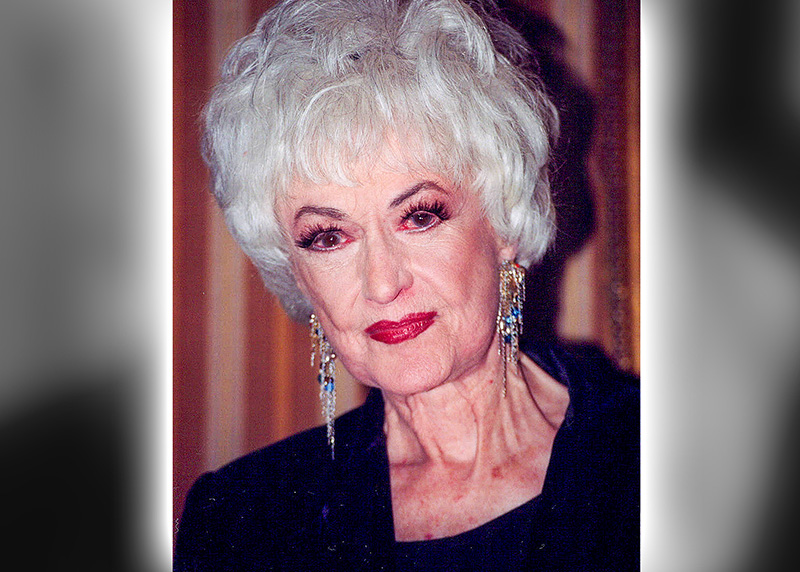ACLU asks Supreme Court to recognize LGBTQ employment protections
Lawyers outline arguments for why the high court should recognize LGBTQ workplace protections in federal law

The American Civil Liberties Union (ACLU) has filed two separate briefs asking the U.S. Supreme Court to recognize that LGBTQ individuals are protected from employment discrimination under Title VII of the Civil Rights Act.
The nation’s highest court recently agreed to hear two separate cases relating to nondiscrimination protections in the workplace.
The first case, which consolidated a lawsuit by a now-deceased skydiving instructor in New York, and another by a Georgia county employee, both of whom allege they were fired after their superiors discovered they were gay.
The second case involves a transgender woman who claims she was discriminated against when the funeral home she was working for fired her after she decided to transition while on the job.
That case seeks to answer two questions: whether gender identity is protected by Title VII’s prohibitions on sex discrimination, or whether anti-transgender discrimination constitutes a form of “sex stereotyping,” the latter of which the Supreme Court has previously ruled is illegal under Title VII.
The briefs, filed in the cases of Altitude Express, Inc. v. Zarda and R.G. & G.R. Harris Funeral Homes v. Equal Employment Opportunity Commission and Aimee Stephens, argue that Title VII should be interpreted as prohibiting discrimination based on sexual orientation and gender identity.
In a blog post, the ACLU’s Ria Tabacco Mar and Gabriel Arkles laid out the arguments for why the justices should recognize Title VII protections for LGBTQ people, while also warning that the Supreme Court’s decision in the case could be consequential for the LGBTQ community.
Due to successful efforts by Republicans in Congress, most notably in the U.S. Senate, to block votes on any piece of LGBTQ-related legislation, LGBTQ Americans have turned to the courts as a last resort to ensure their constitutional rights are recognized.
“LGBTQ employees filed their opening briefs in three cases that will determine whether we are protected from discrimination on the job,” Mar and Arkles write. “That’s illegal under prevailing interpretations of federal law, but the court could reverse decades of progress and announce that it is perfectly legal to fire someone for being LGBTQ. That would be shocking to most people in this country. Yet the fact that the court agreed to hear the cases raises that alarming possibility, particularly now that Justice Kennedy, long seen as the court’s champion of LGBTQ rights, has been replaced by Justice Kavanaugh.”
However, they note, there are some reasons why the court may decide in favor of the LGBTQ employees in the cases in question.
“For starters,” they write, “there’s the text of the statute itself. Title VII of the Civil Rights Act of 1964 prohibits job discrimination ‘because of sex.’ Firing someone for being a man who dates other men, or for being a woman who was assigned the sex male at birth, is literally discrimination ‘because of sex.’
“Then there’s the Supreme Court’s robust history of interpreting Title VII to protect workers from sex discrimination in myriad forms. The court’s very first Title VII case involved Ida Phillips, who was disqualified from applying for a job because she was a mother with young children. The problem was not that Phillips was a woman; the employer hired women in droves. It was the kind of woman she was: one who, the employer assumed, would be too busy with her preschoolers to do the job.
“That is precisely the kind of group-based assumption that Title VII was intended to stamp out. Just as Ida Phillips was entitled to the opportunity to prove that she could do the job, so too LGBTQ people must be free to compete based on their own merit, not assumptions about gender roles.”
Lastly, Mar and Arkles note, the conservative majority on the court doesn’t have to agree that recent decisions on marriage equality were rightly decided in order to rule in favor of workplace protections for LGBTQ employees.
Noting that the briefs were submitted on the anniversary of past LGBTQ decisions relating to marriage equality and overturning sodomy laws that banned same-sex relations, James Esseks, the director of the ACLU’s LGBT & HIV Project, called on the court to decide in the fired employee’s favor.
“LGBTQ people return to the Supreme Court to say that we should be able to live free from the fear of discrimination, Esseks said in a statement. “As we honor the 50th Anniversary of Stonewall and the legacy of the Black and Brown trans women who led and continue to lead our movements, we recognize that our work is far from over. In the courts, in the streets and in communities around the country we will continue to fight until all LGBTQ people can live without fear of violence or discrimination.”
Support Metro Weekly’s Journalism
These are challenging times for news organizations. And yet it’s crucial we stay active and provide vital resources and information to both our local readers and the world. So won’t you please take a moment and consider supporting Metro Weekly with a membership? For as little as $5 a month, you can help ensure Metro Weekly magazine and MetroWeekly.com remain free, viable resources as we provide the best, most diverse, culturally-resonant LGBTQ coverage in both the D.C. region and around the world. Memberships come with exclusive perks and discounts, your own personal digital delivery of each week’s magazine (and an archive), access to our Member's Lounge when it launches this fall, and exclusive members-only items like Metro Weekly Membership Mugs and Tote Bags! Check out all our membership levels here and please join us today!
























You must be logged in to post a comment.